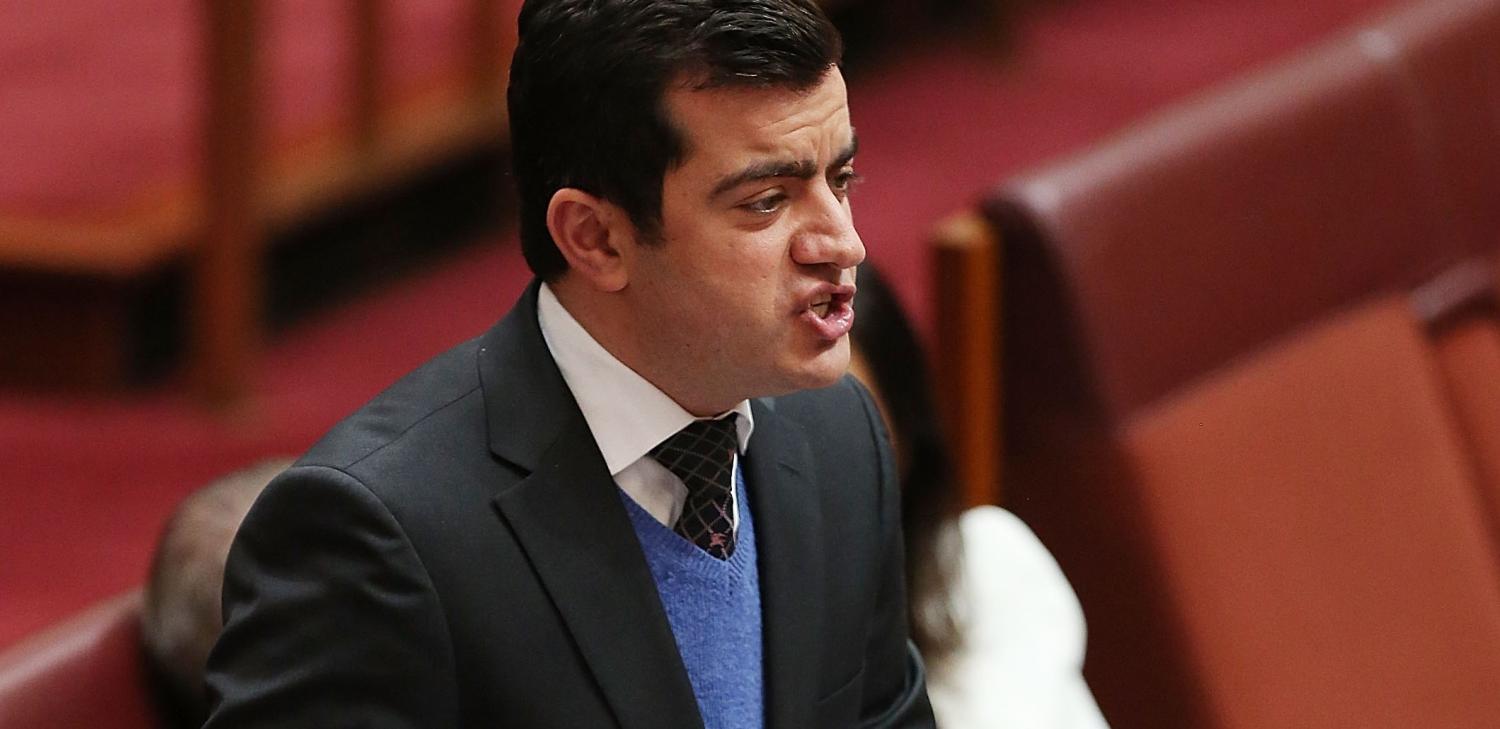Senator Sam Dastyari has found himself back in the spotlight after Australia media outlets reported allegations that Dastyari gave Chinese billionaire Huang Xiangmo 'counter-surveillance' advice and unearthed the audio from Dastyari's now-infamous media conference last year. He quit his frontbench position last year, and has now resigned from parliamentary responsibilities, but the Senate has voted to require Dastyari further explain himself this afternoon.
The Interpreter has been charting the debate over Chinese government influence in Australia's media and politics. In June, John Fitzgerald emphasied the importance of continued Australian media scrutiny in this area:
Public exposure of Chinese government meddling in Australian affairs and of irresponsible self-dealing by Australian politicians and political parties is a necessary pre-condition for advancing the national debate.
After a furore over Chinese students objecting to a University of Newcastle lecturer who characterised Taiwan as a 'country', James Laurenceson wondered whether the issue merited the attention it received:
Should we really be surprised or feel threatened if a small minority of Chinese students choose not to remain silent on matters they perceive relate to their country’s territorial sovereignty? Are Chinese students more sensitive about Taiwan than Indian students about Jammu and Kashmir? And, perhaps most importantly, isn’t a university campus an ideal setting for all students to engage in critical reflection and debate?
New Zealand academic Anne-Marie Brady highlighted the Chinese government's new approach to foreign influence:
Under Chinese Communist Party General Secretary Xi Jinping, foreign influence activities have gone into turbo drive. CCP United Front officials and their agents follow a longstanding policy of developing relationships with foreign and overseas-Chinese personages (the more noteworthy the better) to influence, subvert, and, if necessary, bypass the policies of the local government and promote the interests of the CCP.
Xi also seeks further control over the information environment in China. In order to gain this control in a porous global information environment, he needs to curb debates on China outside the country. China has officially embraced Joseph Nye's theory of soft power, using it both as a justification and as a new euphemism for the Chinese government's expanded and revised overseas Chinese and foreigner management techniques and propaganda offensive. Through its party-state agencies and their affiliates, China has adopted a much broader approach to enhancing its soft power.
In October, Fitzgerald objected to an Australian Financial Review opinion piece by Peter Drysdale and John Denton, which argued that Australia's commentariat have 'demonised' China:
Drysdale and Denton claim to detect in this debate a concerted effort to demonise China and paint the entire Chinese-Australian community as treacherous. They trace this demonisation to deep and gnawing anxieties about the US alliance in the Trump era. They prescribe a remedy of an evidence-based public debate that is free from insinuation and false dichotomy.
If their claims had merit there would be a case to answer. Do they have merit?
Gerry Groot documented the long reach of China's United Front Work system:
A much underestimated and misunderstood part of this ‘democracy’, as the Chinese Communist Party defines it, results from the system controlled by the Party's United Front Work Department (UFWD). This complex set of institutions and organisations act as key elements of surveillance and political influence, but also as means of consultation with and representation of those outside the Party. This system is an important reason the CCP’s control is so effective and regarded as legitimate, and why the dramatic social and economic changes since the late-1980s have been integrated smoothly, especially after the disruptions of May-June 1989.
Earlier this month, Merriden Varrall argued against the apparent predilection of Western companies to self-censor in the face of perceived Chinese pressure:
We know that China wants to increase its influence, and we know what shape that influence takes, and we have (if our media and political commentary is anything to go by) a strong commitment to resist any erosion to our values and norms. Surely we don't need to pre-emptively self-censor?
Finally, Bret Walker noted the merits and disadvantages of any potential 'foreign agents' law:
A proposed foreign agents law must, to be any good, be very clear as to its targets and their obligations. Should only those who seek to influence government policy be required to register? Should that include foreign corporations seeking trading advantages? Should registration be required only of those who act at the request of a foreign government, or should it extend to those who seek to advance a generalised nationalist or patriotic attachment? Can we not agree up front that worthy enterprises such as the Alliance Française should not be bothered with this extra bureaucracy?

